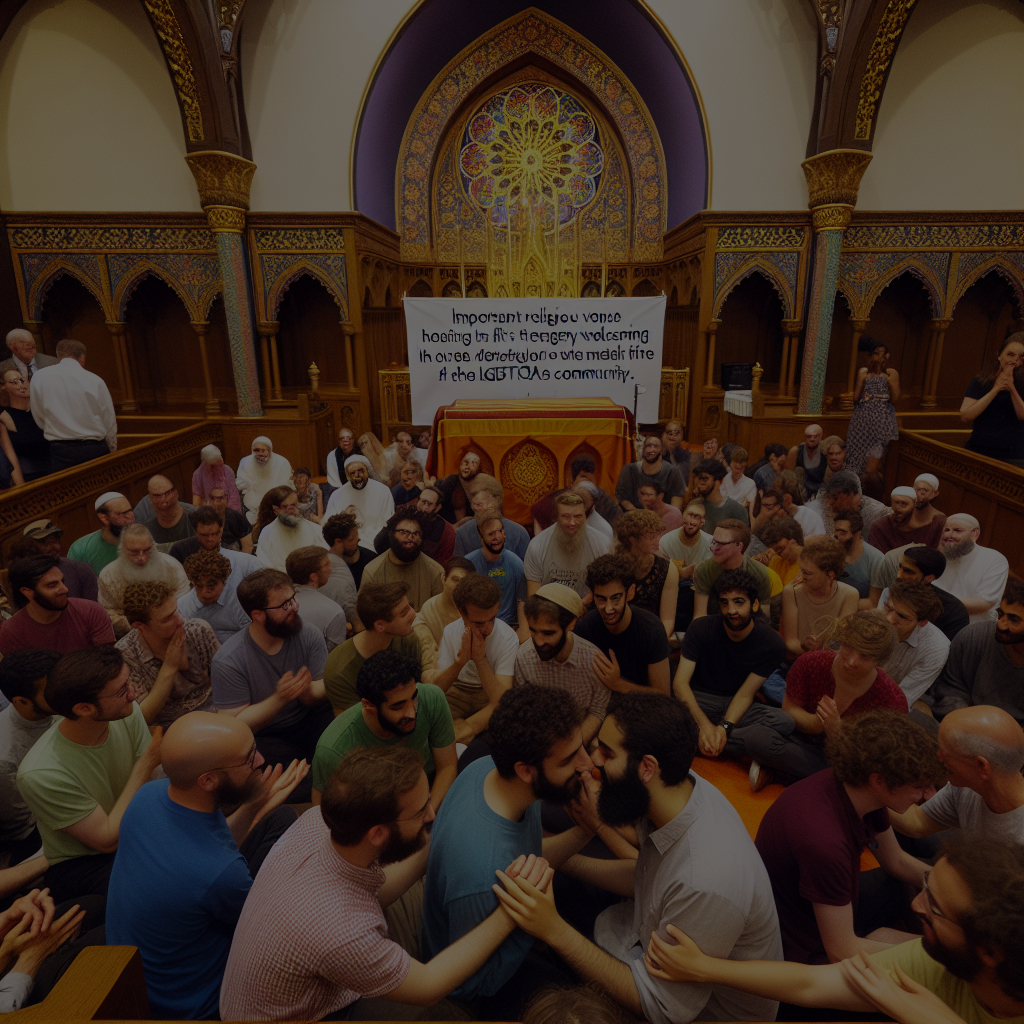Vatican Hosts First-Ever LGBTQIA+ Pilgrimage
An Historic First as Part of the 2025 Jubilee
In a groundbreaking move for the Catholic Church, the Vatican will host its first LGBTQIA+ pilgrimage during the 2025 Jubilee Year. Organized by the Italian association La Tenda di Gionata and supported by multiple international groups, the event is subtly listed in the official agenda for September 5 and 6. Under the general description “pilgrimage of the association Tenda di Gionata and other associations,” approximately 1,300 participants—mostly from Italy—are expected to gather in Rome. The two-day event includes prayer sessions, open discussions, a Mass at the Church of the Gesù, and a solemn procession to St. Peter’s Basilica.
According to Il Messaggero, Pope Francis gave his approval for the initiative near the end of 2024, just months before he passed away on April 21, 2025. However, the pilgrimage faced a brief period of uncertainty when it was temporarily removed from the official calendar after the Pope’s death. Its reinstatement signals a measure of institutional support from within the Vatican, despite ongoing internal tensions.
Seeking Visibility Within the Church
Organizers stress that the pilgrimage is not a political demonstration, but rather an expression of faith and inclusion. “It’s been a slow and cautious process, but the goal is visibility and recognition. In that respect, it’s a real achievement,” said Cyril de Compiègne, president of the French association D&J Arc-en-ciel, who will take part in the event.
Speculation circulated online that participants might carry a rainbow-colored crucifix during the procession. Alessandro Previti of La Tenda di Gionata clarified the matter, explaining that a multicolored cross belongs to a participant group currently walking across Italy. He confirmed that pilgrims will carry traditional wooden crucifixes provided by the Vatican. “If someone chooses to wear a rainbow T-shirt, that’s up to them, but our message is very clear—we are pilgrims like everyone else,” he emphasized.
A Spiritual, Not Political, Gathering
Far from resembling a pride march, this pilgrimage is intended as a moment of spiritual communion. “This is not a protest or a gay pride event,” says Claire Bévierre, president of Reconnaissance, an association supporting relatives of LGBTQ+ individuals. “It’s a prayerful journey that reminds us the Church is open to all. Just as we’ve seen pilgrimages for seniors, youth, or professionals, this one is for LGBTQ+ people and their families.”
Subtle Support from Pope Leo XIV
In what has been seen as a hopeful gesture, Pope Leo XIV recently welcomed American Jesuit priest James Martin for a private audience. Father Martin is widely known for his pastoral work with LGBTQ+ Catholics. “It was a warm and open-hearted meeting, particularly given the sensitivity of the topic,” he told Le Monde.
Though the new pontiff has not yet addressed LGBTQ+ issues publicly, Father Martin said, “The message he shared with me is his desire to continue the welcoming approach of his predecessor.” While this suggests continuity with Pope Francis, the Vatican remains cautious and has yet to propose any new concrete measures under the new leadership.
An Institution Still Divided Over Francis’s Legacy
The inclusive tone championed by Pope Francis—especially following the release of the December 2023 Fiducia supplicans declaration—remains a source of division. The document, which allows blessings for couples in “irregular” situations, including same-sex couples, marked a pivotal point in his papacy. However, it also exposed rifts within the Church. Due to strong resistance, particularly from some regions in Africa, the Vatican eventually gave bishops autonomy to implement or forego the blessings in accordance with local cultural contexts.
The reaction in France was similarly measured. While acknowledging the document, French bishops have largely opted for a strict application—focusing on the blessing of individuals, not couples.
Slow but Measurable Progress
Despite ongoing resistance, many within the Church believe real progress is happening. “We’d all like to see change happen faster, but we have to embrace these first steps,” said Alessandro Previti.
Echoing his sentiment, Claire Bévierre emphasized a bottom-up perspective: “It’s not only about what’s happening at the top. We’re doing the work within the Church, and important transformations are taking place.” She noted that nearly 60% of dioceses in France now provide specific pastoral care for LGBTQ+ individuals and their families—a sign of meaningful and lasting evolution.




Deja una respuesta